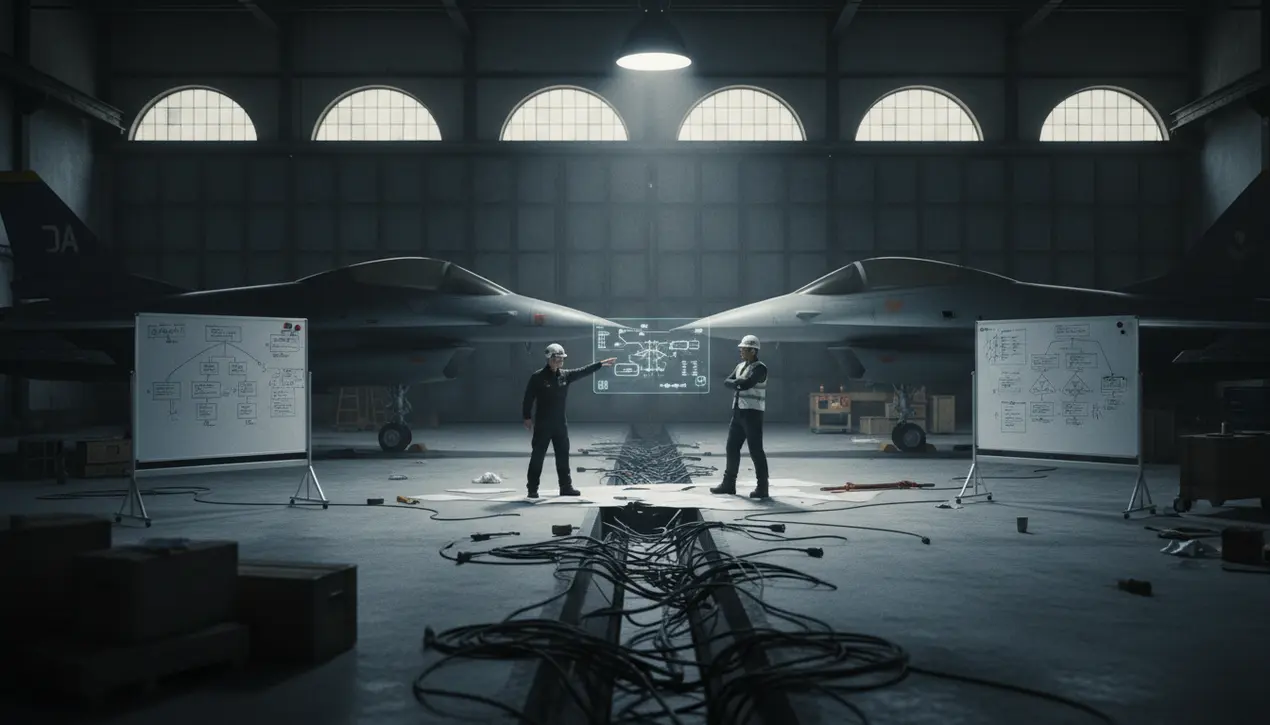
Politicsconflict & defenseAlliances
Europe's FCAS Defence Project Faces Risk Over Franco-German Disputes.
RO
Robert Hayes
2 hours ago7 min read3 comments
Launched in 2017 with a staggering price tag exceeding €100 billion, the Future Combat Air System (FCAS) represents the most ambitious European defence initiative in a generation, a project conceived not merely to produce a next-generation fighter jet and its accompanying swarm of interconnected drones, but to forge a pillar of strategic autonomy for the continent. Yet, this grand vision, reminiscent in its scale and ambition of the multinational industrial endeavours that built the Airbus consortium, now finds itself perilously adrift, caught in the crosscurrents of a protracted and deeply political Franco-German dispute.The core of the impasse lies in a fundamental clash over workshare and intellectual property, a classic fault line in European cooperation. France, through its aerospace champion Dassault Aviation, insists on retaining leadership and critical technological sovereignty, particularly over the fighter's flight control systems and stealth capabilities, viewing the project as the rightful successor to its Rafale lineage.Germany, represented by Airbus, demands a truly equal partnership, reflecting its status as the project's largest financial contributor, and seeks to safeguard its own industrial base and technological expertise for future exports. This is not merely a corporate squabble; it is a high-stakes political drama playing out between Berlin and Paris, the twin engines of European integration.The deadlock over the next crucial phase of development, Phase 1B, which involves demonstrator aircraft, has now persisted for over a year, causing significant schedule slippage and raising the alarming prospect that partner nations, notably Spain, may grow impatient. The geopolitical context cannot be ignored.A more assertive Russia and a shifting transatlantic alliance make FCAS not a luxury but a strategic necessity, an urgent answer to projects like the UK's Tempest and the American Next Generation Air Dominance program. Historians might draw a parallel to the failed Eurofighter negotiations of the 1980s, which saw France exit to pursue its own path, a schism Europe can ill afford to repeat today.The consequences of failure are profound: a fragmented European defence industry, continued reliance on American hardware, and a devastating blow to the political credibility of a Europe that can act collectively on the world stage. For FCAS to succeed, it will require a level of political will and compromise not seen since the days of Kohl and Mitterrand, a recognition that the future security of the continent depends on overcoming the parochial industrial interests of the present.
#FCAS
#European defence
#fighter aircraft
#drones
#Germany-France disagreements
#featured
Stay Informed. Act Smarter.
Get weekly highlights, major headlines, and expert insights — then put your knowledge to work in our live prediction markets.
Comments
Loading comments...
© 2025 Outpoll Service LTD. All rights reserved.